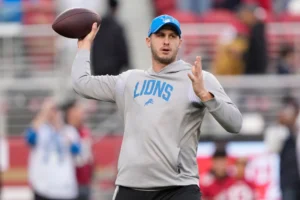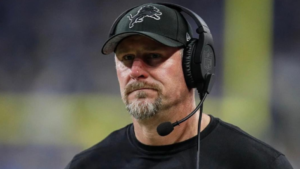
Amy Earnhardt spoke about the dangers her husband, Dale Earnhardt Jr., faced in the final stages of his racing career, focusing on his struggles with concussions and rehabilitation.
The family’s concerns grew as racing became a questionable choice due to his health.
Dale Jr. experienced the harsh side of NASCAR, suffering crashes and head injuries that led to concussions later in his career. In 2016, while racing for Hendrick Motorsports, he was diagnosed with severe concussion symptoms, forcing him to step away for the remainder of the season. Rehabilitation was difficult, and returning to racing became a challenging decision.
However, Amy pushed him to return to the track. In a 2017 interview with USA TODAY Sports, she shared how they both faced the situation.
“It was terrifying,” Amy said. “He was more scared of losing his ability to function and enjoy life than of racing itself.”
“I had to push him to do his physical therapy. He was frustrated with his symptoms because he’s Dale Jr., and he wants results quickly.”
After a long recovery, Dale Jr. was cleared to race again, but his family remained cautious about his health. Despite their concerns, Amy couldn’t tell him to stop racing.

“When he felt better and racing became possible again, he got excited, which helped,” she said. “We were nervous, wondering what if another concussion happened.”
“That wasn’t something I could tell him. It was ultimately his decision. We had many long conversations during treatment, but I couldn’t tell him to retire. My role was to help him feel comfortable with whatever he chose.”
Dale Jr. returned for one final season in 2017, driving the #88 Chevy. While the major symptoms emerged in 2016, Dale believes a crash during the 2012 season may have triggered his concussions.
Dale Earnhardt Jr. suspects a 2012 Kansas crash caused his head injury.
In 2012, Dale Jr. had a serious crash at Kansas Speedway during testing, which he believes caused a head injury, making him prone to concussions.
He recalled hitting the fence at 190 mph and the stiff headrest forcing his head to remain still, causing intense brain movement.
“I knew it was going to be a massive impact,” Dale Jr. said. “My head stayed against the headrest, but everything inside it was moving rapidly, causing my brain to slam against my skull.”
In 2016, Dale Jr. announced that he would donate his brain to science after his death to study the effects of concussions during his career.
He is estimated to have suffered 20 to 25 concussions during his 17-year Cup Series career.







